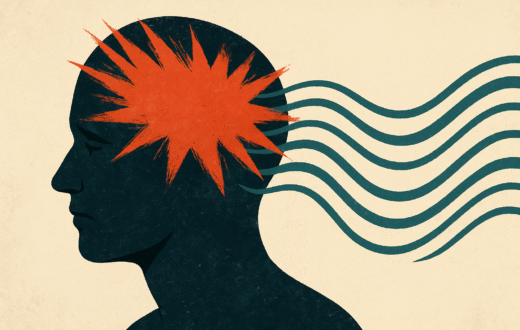Why Harsh Environments Breed Darker Personalities

Why do some societies seem more self-centered, strategic, or ruthless than others? Many would point to culture or politics, but these explanations only scratch the surface. A new study published in Evolution and Human Behavior suggests that ecological conditions—the challenges and uncertainties people grow up with—may shape entire populations’ psychological profiles.
The so-called Dark Triad traits—narcissism, Machiavellianism, and psychopathy—have long intrigued researchers. Narcissists seek admiration and status, Machiavellians use manipulation and long-term strategy, and psychopaths tend to act impulsively and without empathy. All share a focus on self-interest and social exploitation, but they emerge through distinct psychological mechanisms.
Traditionally, research on these traits has focused on individuals, exploring how they influence leadership, relationships, or online behavior. Yet, few have asked why entire nations might lean toward darker or lighter personality profiles. Drawing from evolutionary psychology, the study examined how ecological factors—such as survival rates, gender ratios, and exposure to disease or natural disasters—shape collective patterns of personality across populations.
Mapping the world’s darker tendencies
Across 48 countries and over 11,000 participants, the study found that environmental harshness leaves a measurable mark on national psychology.
Take narcissism: it was more prevalent in countries where there were more men than women during childhood and adolescence, intensifying competition for partners. It also rose in regions where life expectancy was lower, signaling unstable or threatening conditions. In such environments, self-promotion and status-seeking become adaptive strategies—when time and opportunities feel scarce, standing out may improve one’s odds of survival or success.
By contrast, high levels of infectious disease correlated with lower Machiavellianism and psychopathy. In areas where pathogens pose constant danger, maintaining social harmony becomes crucial. Deceit or manipulation can lead to social exclusion, which might be deadly. Cooperation, in these contexts, isn’t just moral—it’s a practical survival strategy.
Disasters, gender, and psychological spillovers
Natural disasters added another layer: they tended to amplify sex differences in dark traits. Men in disaster-prone countries scored higher in narcissism, Machiavellianism, and psychopathy than women. Evolutionarily, these pressures may encourage risk-taking and short-term thinking as ways to navigate instability.
Interestingly, male-biased populations—where men outnumber women—often reduced this gender gap. Women in such contexts appeared to adopt more self-promotional or competitive behaviors, perhaps as adaptive responses to intensified social competition.
The study also discovered psychological spillover effects between neighboring countries. Nations with high inequality scored higher in narcissism and Machiavellianism than their neighbors, suggesting that ecological stressors and social patterns may cross borders through migration, shared media, or regional crises.
Rethinking the dark side
Ultimately, the research reframes dark traits as adaptive responses to ecological pressures, not merely individual flaws or cultural artifacts. In unstable, resource-scarce settings, self-enhancement and opportunism may offer survival advantages. Meanwhile, in pathogen-rich societies, cooperation and conformity can safeguard the group.The broader lesson: personality traits evolve within ecologies. Narcissism, Machiavellianism, and psychopathy are shaped not only by biology or upbringing, but also by the logic of survival embedded in one’s environment. Understanding this helps explain why some societies appear more competitive or self-focused—and reminds us that even our darker instincts may, in part, be adaptive echoes of the environments that shaped us.





